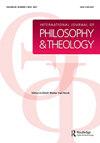Barrett’s cognitive science of religion vs. theism & atheism: a compatibilist approach
IF 0.3
0 PHILOSOPHY
International Journal of Philosophy and Theology
Pub Date : 2020-08-07
DOI:10.1080/21692327.2020.1791232
引用次数: 0
Abstract
ABSTRACT Naturalistic explanations for religious beliefs, in the form of the cognitive science of religion (CSR), have become increasingly popular in the contemporary sphere of philosophy and theology. Some claim to provide proof that theism, or religion more generally, is falsified, whilst others suggest that their theories are compatible with holding religious beliefs. In the following, I focus on the CSR of Justin L. Barrett, in order to argue that this particular naturalistic explanation can be seen to be compatible with both theism and atheism. Although Barrett is a proponent of his CSR’s compatibility with theism, and his work appears to imply that he is an incompatibilist when it comes to atheism and CSR, it is not immediately clear whether: (i) his CSR is definitely compatible with theism; and, (ii) why it should be seen as incompatible with atheism. I investigate these questions, utilising and extending research and tools from David Leech and Aku Visala, to argue for the conclusion that Barrett’s CSR is compatible with both theism and atheism, despite what his work implies. I consider the impact this has on the broader sphere of CSR, naturalistic explanations, and different religious worldviews.巴雷特的宗教与有神论和无神论的认知科学:一种兼容的方法
宗教信仰的自然主义解释,以宗教认知科学的形式,在当代哲学和神学领域越来越流行。一些人声称提供了有神论或更普遍的宗教是伪造的证据,而另一些人则认为他们的理论与持有宗教信仰是一致的。在下文中,我将重点讨论Justin L.Barrett的CSR,以论证这种特殊的自然主义解释可以被视为与有神论和无神论兼容。尽管巴雷特是他的企业社会责任与有神论兼容的支持者,他的工作似乎暗示他在无神论和企业社会责任方面是一个不兼容的人,但目前尚不清楚:(i)他的企业社会义务是否肯定与有神论相兼容;以及,(ii)为什么它应该被视为与无神论不兼容。我利用并扩展了David Leech和Aku Visala的研究和工具,调查了这些问题,以证明巴雷特的CSR与有神论和无神论都兼容的结论,尽管他的工作暗示了什么。我认为这对更广泛的企业社会责任、自然主义解释和不同的宗教世界观产生了影响。
本文章由计算机程序翻译,如有差异,请以英文原文为准。
求助全文
约1分钟内获得全文
求助全文
来源期刊

International Journal of Philosophy and Theology
PHILOSOPHY-
CiteScore
0.30
自引率
0.00%
发文量
12
期刊介绍:
International Journal of Philosophy and Theology publishes scholarly articles and reviews that concern the intersection between philosophy and theology. It aims to stimulate the creative discussion between various traditions, for example the analytical and the continental traditions. Articles should exhibit high-level scholarship but should be readable for those coming from other philosophical traditions. Fields of interest are: philosophy, especially philosophy of religion, metaphysics, and philosophical ethics, and systematic theology, for example fundamental theology, dogmatic and moral theology. Contributions focusing on the history of these disciplines are also welcome, especially when they are relevant to contemporary discussions.
 求助内容:
求助内容: 应助结果提醒方式:
应助结果提醒方式:


